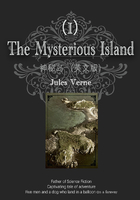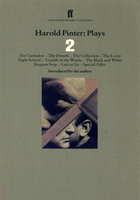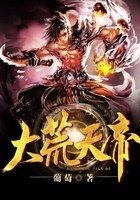3. The cradle of the sixties: 1956
The sixties started in 1956 when Lonnie Donegan's 'Rock Island Line' hit the charts, though few people noticed until the Beatles released 'Love Me Do' in 1962.
The things that made the sixties happened in 1956. John Osborne's Look Back in Anger opened at the Royal Court, 4 miles and several light years away from Shaftesbury Avenue, and his anti-hero Jimmy Porter told the world: 'There are no good, brave causes left.' The British and Soviet governments instantly set out to prove him right: Britain invaded Suez and the Soviet Union invaded Hungary; the recently dead Stalin was revealed to have been a murdering, torturing tyrant; and suddenly there really were no good, brave causes left. The British government's foolishness and pride destroyed the old, brave, patriotic causes, the idea that Britain was a civilising force for good in the world; and the Soviet government's cynical brutality destroyed the brave, egalitarian cause of Communism.
The year 1956 was the hinge of the twentieth century, the moment when the old Britain died and a new one was born. The baby boomers were to grow up into a nation where nothing was certain any more. Jimmy Porter's father, terribly injured fighting for the Republicans in the Spanish Civil War in the thirties, had used up the last good, brave cause. The stage was set for a generation that had the instinctive radicalism of the young, the freedom to express it that had been denied to its predecessors – and nothing in particular to do with it.
So 1956 was the bridge across which Britain walked from 1948 to 1968: from the year of the Attlee revolution, the National Health Service, universal unemployment pay, universal sickness benefit, the things we have taken for granted ever since, to 1968, year of the Paris événements, the student sit-ins, demonstrations against the Vietnam war. It was the year when the young rebelled against the austerity and grey conformity of the immediate postwar years, and when everything Britons had known turned to ashes. It was the nursery of the sixties, and the seeds of all that was good and all that was bad in the sixties are to be found in it.
It was the year when the old assumptions were shattered. The assumptions that Britain was a great power; that being British was something special; that politics and political dogmas and doctrines could make the world a better place; that the British Empire was strong and benevolent and for ever; that British theatre mirrored the unchanging values of the British upper and middle classes; that British music was gentle and tuneful, unlike the raucous rock 'n' roll that seemed to have gripped the USA.
Yet no one could have predicted on 1 January that 1956 was going to be anything special. The year before, the new Prime Minister, Sir Anthony Eden, had won a handsome general election victory, and if ever a Prime Minister looked like a safe pair of hands, it was Eden. He was one of the country's most experienced and respected politicians, and his long-expected arrival at 10 Downing Street did not look like the end of a political era. If you had said in almost any company that within a decade the British Empire would cease to exist, you would have been laughed at or patriotically punched.
But as early as March, there was a dim realisation of the terrible truth, for March 1956 saw the desperate measure of deporting Archbishop Makarios from Cyprus, and the suppression of the Mau Mau in Kenya.
In July, President Nasser of Egypt announced his intention to nationalise the Suez Canal. Egypt had been a British possession in all but name until the early fifties, and British troops had protected the British interest in the vital Suez Canal. By 1956, the Middle East was providing 70 per cent of the West's oil, and half of Europe's supply came through the Suez Canal. The imagined innate superiority of the British character and culture, which most British people still took for granted, allowed the troops in Egypt to behave with an imperial arrogance that naturally infuriated the locals.
British soldiers never referred to Egyptians; they were always 'the Wogs'. An officer once found on his desk a driver's report of a traffic accident between a British army vehicle and a Rolls-Royce which read: 'Two Wogs were inside, and their names were King Farouk and Ali Ismail.' The officer told the driver to rewrite it: he could not refer to the King of Egypt as a Wog. The report came back: 'I asked them their names… they were King Farouk and another Wog called Ali Ismail.'[1]
It would never have occurred to the British that they might not be welcome. But they were not; and in 1951 the Egyptian Prime Minister demanded that British troops should leave. There were gun battles and riots, and in 1952 the Egyptian king was deposed. The country's new leader was General Neguib, who was himself ousted two years later by the charismatic, confident Colonel Gamal Abdel Nasser, only thirty-four when he came to power, and determined to get rid of the British.
A deal was done in 1954 for the eventual British departure, and the next year Eden, then Foreign Secretary, visited Nasser to get him to sign up to the Baghdad Pact, an anti-Communist alliance. Nasser thought the pact was a ruse to enable Britain to continue to control the Middle East. He failed to take a shine to Sir Anthony. 'What elegance!' he said to a confidante. 'It was made to look as if we were beggars and they were princes.'[2]
Egypt refused to sign up to the Baghdad Pact, so Eden refused to sell Nasser armaments, and Nasser therefore began buying his arms from Czechoslovakia. So Eden decided Nasser must be a Communist stooge, and Britain and the USA withdrew their offer of $100 million to build a dam at Aswan. Nasser's response was to nationalise the Suez Canal, calculating that he could get the revenue he needed for the dam from the canal.
During a broadcast speech, he secretly arranged a code for his army. The moment they heard the name of Ferdinand de Lesseps, architect of the Canal, they moved swiftly into the offices and installations of the Canal, and took it over.
This seemed to the British press – and to Eden, now Prime Minister – to be very alarming indeed. Harold Macmillan, Chancellor of the Exchequer, wrote in his diary: 'If we lose out in the M. East, we lose the oil. If we lose the oil, we cannot live.'
But at that stage Macmillan's countrymen had more important things to think about. In the month of Nasser's invasion, at Old Trafford, one of the greatest spin bowlers who has ever lived, Jim Laker, took nineteen Australian wickets for just ninety runs, a feat that has never been achieved by anyone else, before or since, and probably never will be. It sealed a victory by an innings and 170 runs. It also triggered a wave of pure patriotic pride which ensured that, when it came to it, Britons were determined not to be pushed about by some damned Egyptian generalissimo.
Britain, France and Israel reached a secret deal. Israel would attack Egypt across the Sinai. Britain and France would call on both sides to withdraw from the Canal. Nasser was sure to refuse, and this would enable Britain and France to place their armies, supposedly as a peace-making force, between the Egyptian and Israeli forces – and they would take control of the Canal and humiliate Nasser.
Israel attacked, and Britain and France issued their ultimatum to Israel and Egypt. Israel accepted it, but advanced nonetheless. An eager young colonel called Ariel Sharon, who was to become Prime Minister, exceeded his orders, taking all his objectives at once. No one had explained to Colonel Sharon that he was depriving Britain and France of their flimsy excuse to invade, by completing his mission and ensuring there was no further fighting that the European powers could step in and put a stop to.
On 31 October Britain and France started bombing Egyptian airfields and defence installations, and a fleet sailed from Malta. In the House of Commons, Foreign Secretary Selwyn Lloyd denied any prior agreement with Israel. He lied. So did Eden. Amazingly, the British government seems to have thought that the American government would go along with whatever the British decided to do. In the USA it was six days to polling day in the presidential election and, without telling him, President Eisenhower's old wartime friends in Britain, Anthony Eden and Harold Macmillan, had thrown sand in his face. It was now clear to the President that they had been lying to him for weeks. His wrath was terrible. For the first time ever, the USA combined with the Soviet Union at the United Nations, to condemn Britain and France.
The British landings went ahead on 5 November. But when, the next day, Eisenhower won his expected landslide electoral victory, Macmillan had to report to the cabinet a serious run on the pound, orchestrated deliberately in Washington. Britain's gold reserves had fallen by an eighth, and only a ceasefire by midnight would bring American support for an IMF loan to prop up the pound. Britain had to withdraw, the Chancellor told his colleagues. At midnight on 6 November Britain was forced to accept a ceasefire or face bankruptcy as a result of American displeasure.
The humiliation was felt most severely in the army, the prop of Britain's imperial pretensions. The soldiers, sailors and airmen felt demoralised, even betrayed. They had done the work that was asked of them, faultlessly; now they were effectively told that it was all a mistake. People die in war, and men had died in this one. But generally, in the past, their grieving families were able to cling to the idea that the sacrifice was in a noble cause – the defeat of the Nazis in Europe, the defeat of Communism in Korea. This time, no one could pretend that the sacrifice achieved anything. Such a dreadful thing was not to happen again until Tony Blair invaded Iraq.
So instead of pride there was bitterness and cynicism, made worse in the army because the post-Suez cuts in army expenditure bit deeply. That cynicism is the legacy of Suez to the baby boomers. It affected them in different ways, propelling some to the far left and some to the far right, and some to each of these extremes in turn.
By 1956, Britain had not been a world power for at least a decade; but neither the people nor the government had fully accepted this. After 1956, no amount of self-deception could hide it. A curt instruction from Eisenhower to give up the invasion or be ruined forced Britain to face the finality of the postwar settlement, in which it was financially and militarily a vassal to the USA. Every Prime Minister since Eden has remembered that lesson. Only Harold Wilson dared a serious rebellion, and only Edward Heath questioned the idea that British foreign policy should revolve around our 'special relationship' with the USA.
Heath's thinking was influenced by having watched that terrible moment in November 1956. He – unlike Eden – understood that while British politicians were thinking of nothing but Suez and Washington, the European Economic Community was taking shape. On the very day in November 1956 that Eden telephoned French Premier Guy Mollet to say that a withdrawal from Suez was unavoidable, Mollet and German Chancellor Konrad Adenauer were meeting to eliminate the last obstacles to European integration; Mollet left the meeting with great reluctance to take Eden's call. Roy Hattersley writes: 'As the old order was crumbling on one side of the channel, a new order was being created on the other.'[3] The Treaty of Rome was signed in March 1957 by Italy, France, Germany, Belgium, Holland and Luxembourg.
*
The baby boomers watched from their prams and their primary schools, and for the rest of their lives they never knew whether they were Europeans or Atlanticists, or whether they regarded both America and Europe with dark suspicion. The unbeatable power of the USA was the first lesson the baby boomers learned as they began to be conscious of world affairs, and they seem never to have forgotten it, expecting their leaders to behave like musical doormats that play 'See the conquering hero comes' every time the US president of the day wipes his feet on it. The first baby boomer Prime Minister, Tony Blair, was the most slavishly obedient Atlanticist British politics has ever seen. That's the long-term legacy of Suez.
Those with some connection to the military were probably even more closely affected by it than their contemporaries. One of the career soldiers to be forced unwillingly out of the service in the aftermath of Suez was Commander Eric Hitchens, whose younger son Peter, then a child of four, says his father would far rather have stayed with the navy he loved. It left Commander Hitchens with some anger and bitterness, which Peter imbibed, and this was, perhaps, the start of the strange political journey of Peter Hitchens, baby boomer and child of the sixties, from far right to far left and back again.
*
Suez should have been the moment the Communists had waited for, ever since the foundation of the Communist Party of Great Britain in 1920. For thirty-six years, Communism had been the hope of radical, egalitarian reformers. Suddenly, in 1956, it ceased to be so. It left a vacuum so vast that in the half-century that has elapsed, no one has yet found a way of filling it. Its collapse was at the heart of the emptiness of the sixties.
In June Britain heard about Nikita Khrushchev's 'secret speech' in which he denounced, in compelling and horrific detail, the crimes of Stalin: the regime of torture and mass murder which Stalin had run throughout the thirties and right up to his death in 1953. It was delivered to the Congress of the Communist Party of the Soviet Union at the beginning of the year, but kept secret from the world until June. It was not until The Observer obtained a copy of the speech, with its revelations not just of torture and mass murder but of anti-Semitic purges too, that Britain learned of it.
Some of the British Communist Party's own most dedicated members had been tortured and killed in the Soviet Union. Phil Piratin, who had been the Communist MP for Mile End from 1945 until 1950, and in 1956 was a member of the party's Political Committee, told me shortly before his death in the 1990s:
Sometimes at our political committee meetings after Stalin's death, Harry Pollitt [the party's general secretary] would take from his pocket a piece of paper, and say that the Czech Ambassador or someone had given him the following names of people who had been – what was the word they used? Terrible word. Horrible word. Rehabilitated, that's it. A terrible word, because if you had to be rehabilitated, you had been killed.[4]
Yet even years after that speech, there were those who clung to the old certainties and claimed Stalin never really tortured and murdered people. The baby boomers never forgot how to practise this sort of self-deception. Fifty years after 1956, some baby boomers could be found claiming against all the evidence that Britain was not collaborating in the torture of suspected terrorists, and that waterboarding was not really torture.
Four months later, Soviet tanks rolled into Hungary, and put an end once and for all to the idea of Communism as a generous and idealistic movement. The suppression of the Hungarian uprising was swift, ruthless and brutal. As Hungary's prisons opened, hundreds of gaunt men and women crawled out, seeing the sun for the first time for years, with dreadful tales of torture and ill-treatment to tell. The Daily Worker reporter Peter Fryer came back to London, tore up his Communist Party card, and wrote, very fast, a harrowing book called A Hungarian Tragedy, published the same year. 'I saw a crowd of demonstrators,' he wrote, 'and the police just mowed them down with machine guns, including women carrying their children.'[5]
Fryer had seen evidence of crimes committed throughout the time the Communists had controlled Hungary. He had met Edith Bone, an English writer and translator who had disappeared in Hungary seven years previously. During the riots, she crawled out of her prison cell – a cell where one wall was solid ice, where her guts had been ravaged by the dreadful food, where she had been kept for seven years in solitary confinement, and where she had been tormented by arthritis for which her captors gave her neither treatment nor painkillers. He found out that former Prime Minister László Rajk had been forced to confess in return for a quiet life in which he and his wife and child would be looked after in the Soviet Union. Then his wife was forced to watch his execution.[6]
Before 1956, young idealists impatient with the caution and reformism of the British Labour Party could find a home in the Communist Party. It had worked ruthlessly and successfully for two decades to make itself the only party on the left. The Independent Labour Party, a force in the land in 1931, was reduced to virtually nothing by 1945, because Communists were told to join the ILP, get themselves elected to important positions in their branch, and then expel all the other members for deviating from the line.[7] The party had managed to keep its enemies on the Trotskyist left confined to tiny, warring, discontented factions.
But the left could no longer fool itself about the Soviet Union. The world in which radical idealists had lived for three decades was suddenly uninhabitable. Radical youth was finally decoupled from Communism. In 1956 the British Communist Party lost a third of its members. The crucial commercial branch of the party, which had supplied a large part of its money, ceased to exist, for the commercial branch was made up largely of Jewish business people, who gave generously because they saw the party as a bulwark against fascism and anti-Semitism, but now knew that Stalin persecuted Jews. Even the staff of its own paper, the Daily Worker, started to peel off. They agreed a resolution saying that what had happened in Hungary, so far from being the suppression of an anti-socialist conspiracy as their paper had claimed, was in fact 'a national uprising against an infamous police dictatorship'.[8]
The party's new leader, John Gollan, was forced to beg Moscow for money, explaining to Khrushchev that if it was to carry on any real level of activity, Khrushchev had to reinstate the Moscow subsidy which the party had had in the thirties, but which had not been needed since the outbreak of the Second World War. From 1957 on, Britain's Communists secretly received about £100,000 a year in cash from the Soviet embassy, handed over in cash and in great secrecy to a senior party official. The amounts gradually decreased until they stopped in about 1979. Only four top Communists knew about it.[9] Seven thousand people left the party.
The Communist Party had provided a home for young radicals of the twenties, thirties, forties and fifties, but their sons and daughters, their younger brothers and sisters, the baby boomers, had to look elsewhere for hope and for inspiration. Communism suddenly looked like yet another oppressor. Its headlong decline left a gaping hole. Just as there was radicalism to be harnessed, there was no credible party to harness it. This left many homeless idealists, ripe for the shibboleths of the sixties. The sons and daughters of young idealists who had turned to Communism in the thirties and forties had to look elsewhere for hope and inspiration.
*
As old gods decayed, new ones rose up. Television became a power in the land very quickly in 1956.
Television as a mass medium was uncharted territory. As 1956 began, no one knew where it would take Britain. By the time the year was over, everyone had a pretty good idea, and few people found the prospect comforting.
For 1956 was the first full year of independent television, which began broadcasting on 22 September 1955. That first night, advertising on television was a great shock. It seemed like sacrilege to bring the sleazy world of advertising into the sanctum of the home, like pole dancing in a cathedral. When our parents saw the first advertisement, it seemed something dreadful, a precursor of a world we were not sure we wanted to live in. Viewers saw a tube of toothpaste embedded in a block of ice and a woman brushing her teeth in the approved manner, 'up and down and round the gums'. The slogan was: 'It's tingling fresh. It's fresh as ice. It's Gibbs SR toothpaste.'
Quite soon children and teenagers were going round singing jingles from the advertisements, and most of them can still sing them: 'You'll wonder where the yellow went/When you brush your teeth with Pepsodent' or 'Murray Mints, Murray Mints/The too-good-to-hurry mints'. Advertising had already entered deeper into the lives of the baby boomers than into those of any earlier generation.
Jokes began to centre on advertising slogans. Here's one, told over pink gins in my parents' Hertfordshire home. A man is walking through the desert with a camel and a native bearer when he hears a quiet, insistent sound: 'One, two, three…' He tells the bearer, 'If you don't stop that, I'll shoot you.' But the monotonous, maddening sound continues: 'Twelve, thirteen, fourteen…' He shoots the bearer, but still it goes on: 'Fifty-seven, fifty-eight, fifty-nine…' So he shoots the camel. All alone, he hears it go on: '145, 146, 147…' In despair he sits on a rock and takes out his matches and his packet of Players cigarettes. Then he remembers. It's the tobacco that counts.
Television enabled the whole nation to watch, with horror and disbelief, as their proud and powerful British Empire made a prat of itself at Suez. The whole world saw. Enemies laughed. Friends looked the other way, embarrassed, but with a little secret smile too, as though they had watched a pompous senior colleague about to deliver a reproving homily when his trousers fell down.
And it was in 1956 that television stepped into the centre of political affairs, when the government was forced to abandon a rule preventing television discussion of anything that Parliament was to discuss within the next fourteen days.
Churchill and Attlee had been the first political leaders to learn to master radio. Their successors had to learn to master television. The new Labour leader, Hugh Gaitskell, elected the previous year, was the first top politician of the television age, and in 1957 Harold Macmillan became the first Prime Minister to make himself into a first-class TV performer.
*
ITV conditioned the childhoods of the baby boomers, making them fundamentally different from any earlier generation.
Nine-year-old Greg Dyke lived in 1956 in his parents' small suburban house in Hayes where the television could receive only BBC. 'My dad was always of the view that the BBC was "proper" television and that advertiser funded television was inevitably inferior.' Dyke felt terribly left out in the playground while the others were all talking about The Invisible Man, Robin Hood, Take Your Pick and Double Your Money.
He was lucky to have anything, though. His had been one of the first houses in the street with a television – one of the houses which all the other children crowded into at strategic moments – though the machine ceased to work after they had owned it for a week. 'My dad called out the TV repair man who came and plugged it back in. My dad was never a practical man.'[10]
Three decades on, Greg Dyke was to be the leading voice in defining independent television for the baby boomer generation.
One of the first ITV programmes was The Adventures of Robin Hood, with a theme song which today many baby boomers can still sing:
Robin Hood, Robin Hood, riding through the glen.
Robin Hood, Robin Hood, with his band of men
Feared by the bad, loved by the good –
Robin Hood, Robin Hood, Robin Hood.
But who were the bad, and who were the good? Robin Hood scripts, although they were providing work for American writers banned by Senator Joe McCarthy's House Un-American Activities Committee, were nonetheless careful to dilute the dangerously socialist message of the original Robin Hood myth: that taking money from the rich and giving it to the poor – or redistributing it, as Clement Attlee would have put it – was a good thing to do. The baby boomers were not to be offered an ideology to harness to their impatience for change.
So the show redefined the Robin Hood myth, put scent behind its ears and made it innocuous. Before the programme, I remember reading and loving a book about a rough, hairy outlaw who robbed the rich to give to the poor. But the glossy television Robin Hood eclipsed that image in my impressionable young mind. Television offered the baby boomers the matinee idol Richard Greene as a dimpled, cleanshaven and prettified version of the famous outlaw, and storylines that presented the tax collector as the enemy instead of the rich. In 1956, it was just six years since the state had ceased to be Robin Hood, and the original pre-television Robin Hood message had a distinctly socialist feel to it. It would not do at all.
In two-channel London households, Robin Hood was Number 1 for January 1956 with a staggering 78 per cent audience share. That year, we rushed home from school to watch it, or went to the home of a friend with a television. The luckiest of us were allowed to sit up until 10 p.m. and see Sunday Night at the London Palladium, which also began in 1955. We went to school the next day and regaled our less fortunate classmates with the jokes told by regular compere Tommy Trinder. He said how lucky it was that his fellow comedian Bob Monkhouse could take a joke, 'and he doesn't mind whose jokes he takes.' He added: 'I put him on a plane with Shakespeare – no one knows who wrote his stuff either.'[11]
Trinder was chairman of Fulham Football Club, where he made Johnny Haynes the first footballer to earn £100 a week. He once told Field Marshal Montgomery what a great player Haynes was – 'He'll be captain of England one day, though he's only eighteen.' 'Eighteen?' said the old soldier. 'What about his national service?' 'Ah,' said Trinder, quick as a flash. 'That's the only sad thing about the lad – he's a cripple.'[12]
But we did not get to stay up so late that we heard that wonderful old professional come on after the show had been delayed by an hour and a half because of a technical fault. He had kept the audience in the theatre entertained all that time with his ad-libbing, and when the cameras were finally on him, and he was live, he strode to the front of the stage and said 'Welcome to Monday morning at the London Palladium.'[13]
Sunday Night at the London Palladium was, though it never knew it and neither did we, part of the world that was dying. After a year, Trinder was fired in favour of the less irreverent Bruce Forsyth. It lost such edgy modernism as it had possessed, and its suited comedians and sequinned crooners started to look fatally dated after Lonnie Donegan's 'Rock Island Line', Britain's first skiffle hit, entered the charts on 6 January 1956.
A few days later, fifteen-year-old John Lennon walked into a Liverpool record shop and bought the record – a precious 78rpm disc, the first he had ever bought, which he took home with infinite care and ceremony. After he had listened to it over and over again, he begged and pleaded for a guitar. 'Rock Island Line' became the first song he learned to play, which makes it as good a symbol as you will find of how 1956 fathered the sixties.[14]
It is not that skiffle was new. Black musicians had been using the term for impromptu music-making since the twenties, and 'Rock Island Line' was a song first performed by the black American folksinger Lead Belly in the thirties. The point was not newness, but a new spirit of irreverence. British musicians had been, or had appeared to be, content with the sort of well-behaved feelgood music that had adorned musicals like Salad Days: light melodies, sweet lyrics, innocent and inoffensive songs that rhyme moon with June, sung by wholesome singers like Pat Boone, Dickie Valentine and Rosemary Clooney.
The new, raucous music was coming from America, and until 'Rock Island Line' most of the rock melodies in the British charts were American imports, so British youth culture spoke with a transatlantic accent. From a nation still marked by shortages and austerity, young people gazed enviously at their richer and freer US counterparts. They watched American youth films hungrily, for there they saw elegantly casual teenagers leaning nonchalantly against mammoth but sporty convertible motor cars with rows of gleaming teeth where the radiators ought to have been. The very word 'teenager' was an American import, and it conferred a sort of status on the latter end of childhood that older words like 'adolescent' lacked.
The British music industry relied for the new music on American imports like 'Rock Around the Clock', recorded in 1954 by Bill Haley & The Comets but not heard in Britain until 1955. It wasn't quite the first rock 'n' roll record, but it was the first one most people in Britain heard, and it put rock 'n' roll on the map.
'Rock around the Clock' was utterly different from what young people had been dancing to, and it was inherently subversive: the word 'rock' originally had a sexual meaning, and 'rock around the clock' was a boast of sexual prowess. To the horror of an older generation, it swiftly replaced the gentler music they had courted to. It was the fearsome approach of music that sounded, to men and women brought up on crooners, like a declaration of war.
So 1956 marks the moment when the young started to demand music that, however incoherently, spoke of rebellion. Or perhaps it marks the moment when record companies caught up with what was going on among the young.
Despite 'Rock Island Line', even after January 1956 most of the Top Ten were still American. Elvis Presley made his first appearances in the British charts with 'Heartbreak Hotel' in January 1956 and 'Love Me Tender' in September. But Britain's own rock stars were waiting in the wings: Lonnie Donegan, Tommy Steele and many more.
A lot of complacent middle-aged arbiters of British good taste were made to look very foolish, very fast. 'I don't think the rock 'n' roll craze will come to Britain. It is primarily for the coloured population. I can't see it ever becoming a real craze,' said bandleader Ted Heath early in 1956. But in September there were disturbances at packed British cinemas when The Blackboard Jungle was shown and cinema seats were torn up. The blame was laid at the door of 'Rock Around the Clock', which was heard over the opening credits, though it may also have had something to do with the subject matter – the film was about a teacher at a tough high school, where the teenagers make the rules and the staff meekly accept the fact that they've lost control.
In fact, no one knew why they were doing it, and that was what puzzled people. Riots with an end in view, people knew. Even riots against something, with no clear idea of the end, they knew. But riots for the sake of them, because the film conjured up an inchoate conviction that the world was amiss and ought to be put right – these were new, and no one understood them, least of all the people taking part in them.
When Haley came to Britain later in the year, a stoutish, conventionally dressed man in his thirties, he was not what British youth had hoped for. He had the guitar, the symbol of the revolution, but ought not someone younger be offering to carry it for him?
It was that moment, perhaps, that crystallised the new spirit. The rebellion centred on being young, not on being right or radical. And that was the spirit that 1956 bequeathed to the sixties, the spirit that turned the worship of youth into a religion – the only religion. It had been spookily foreshadowed the previous year by that sixties hero in the making, James Dean. In the 1955 film Rebel without a Cause he had been perhaps the first to articulate the philosophy of the sixties. What, he was asked, are you rebelling against? 'What've you got?' he replied.
*
If Ted Heath (the bandleader, not the politician) was swiftly to be made to look foolish by the fast-emerging spirit of the sixties, how much crueller was the fate of the theatrical establishment. The idea that the theatre existed for the cosy middle class, whose tastes must predominate, had been firmly established in the postwar years. The playwright Terence Rattigan, whose first successes had been in the thirties and who was forty-five in 1956, had once described the audience member whom, he thought, no playwright dared upset: 'That nice, respectable, middle-class, middle-aged lady.' Most people confidently assumed that this philosophy would survive the challenge being mounted from the east of London by Joan Littlewood at the Theatre Royal Stratford East and from the west by George Devine at the Royal Court in Chelsea. Most people were wrong.
At the Royal Court, Devine began in 1956 to offer a new kind of play. John Osborne's Look Back in Anger had its premiere there on 8 May, and changed the world that British theatre reflected. It announced the end of what critic Kenneth Tynan, who was to be a sixties icon, once called the 'dododramas', set in Colonel Bulstrode's library somewhere in Hampshire.
Look Back in Anger was Osborne's second go at this idea. His first, in many ways a better play, was Epitaph for George Dillon, which showed more starkly the conflict between the generation that had grown up after the war and the one that knew the thirties. A middle-aged man could still say, as a character does in Epitaph for George Dillon: 'Hitler had the right idea. 'Course, he went too far.' 'You think so?' asks the young hero, a prototype of Jimmy Porter, with a heavy irony that is entirely lost on his companion, who replies, 'Definitely.'
Look Back in Anger was a good play, but not, despite its fearsome reputation, a particularly radical or left-wing one. But it did puzzle and irritate the middle-aged. Milton Shulman told Evening Standard readers: 'It aims at being a despairing cry but achieves only the stature of a self-pitying snivel.' When Laurence Olivier went to see the play, when he heard Jimmy Porter shout, 'There are no good, brave causes left' – the cry of a generation that could not go and fight for socialism and democracy in Spain, as Jimmy Porter's father had done, or fight Hitler in Europe – Olivier did not know what the man was talking about. He just thought it was a rotten play. He had no idea of the flowering of brave causes this presaged, from the Campaign for Nuclear Disarmament to Anti-Apartheid – and would not have thought much of them if he had.
But the enfant terrible among the theatre critics, Kenneth Tynan, wrote in The Observer: 'I doubt if I could love anyone who did not wish to see Look Back in Anger.'[15] He added, 'I agree that Look Back in Anger is likely to remain a minority taste. What matters is the size of the minority. I estimate it at roughly 6,733,000, which is the number of people in this country between twenty and thirty.'[16] This was, of course, fatuous, and wrong in pretty well every respect – many young people hated the play, and many more were indifferent to it or had never heard of it. Tynan had been an exceptionally clever undergraduate, which is what he remained all his life, really. But it was only in the prologue to the sixties that an exceptionally clever undergraduate could make so foolish and arrogant a statement and be taken seriously. The spirit of the sixties is one in which youth believed it was right because it was young; and its legacy is the cult of youth that the baby boomers now complain of, in which politicians and business leaders have only to speak the words 'new' or 'modern' or 'modernise' in order to be automatically right; in which the most damaging thing you can say is: 'You're against modernisation, then?'
Osborne was bracketed with writers like Kingsley Amis as one of the 'angry young men'. Just as ownership of 'young' was to become a battleground for decades, so was ownership of anger, claimed by Osborne in 1956 and in the seventies by the Angry Brigade.
But Tynan was right in this sense: whether you liked or disliked Look Back in Anger did depend partly on your age. Terence Rattigan, until 1956 the king of London's West End, almost walked out of the Royal Court on the first night, and emerged at the end to tell waiting journalists that the play should really have been called Look Ma, I'm Not Terence Rattigan. Four years later, in 1960, Rattigan was still saying of what by then was known as kitchen sink drama, 'I'm pretty sure it won't survive. I'm prejudiced because if it does survive, I know I won't.'
The new work did survive, and Rattigan's went into a lengthy eclipse, helped on its way by unremitting hostility from Tynan: an eclipse from which it is only now, over half a century later, beginning to emerge. Yet as the twenty-first century opens and Rattigan's plays are benefiting from a modest revival, theatregoers are finding, rather to their surprise, that his message is generally a good deal more radical than Osborne's.
For Osborne's play, and Osborne himself, were not at all clear what it was about the old order that they disliked and despised, or what their new order might consist of. By contrast, in the thirties, radical works of literature were normally the work of socialists, angry at extremes of wealth and poverty – think of How Green Was My Valley. Rebellion against the old order simply because it was old was something new. Osborne was a rebel without a cause.
But that was the mood of the time, one quickly grasped by Laurence Olivier, whose political antennae were much more sensitive than Rattigan's. When Olivier's friend, the great American playwright Arthur Miller, came to London and said he would like to see the new play that the New York Times claimed had 'wiped the smugness off the frivolous face of English theatre', Olivier agreed to give it a second try. After the first act Miller said, 'God, Larry, you're wrong, this is great stuff.' The great actor suddenly felt old, stuffy, establishment; and he also started to see merit in the play. So when he met John Osborne, he asked the young writer if he might think about writing a play with him in mind. Osborne was delighted, and within what seemed to Olivier to be an amazingly short time, the first act of The Entertainer arrived.
Nine days after Look Back in Anger, Peter Ustinov's Romanoff and Juliet opened at the Piccadilly Theatre, foreshadowing the Suez crisis and offering a new irreverence towards British imperial ambitions. 'You have only to strike oil,' says the Prime Minister of Ustinov's fictitious European country, 'to be invaded tomorrow. The English have been here often on the grounds that we were not fit to govern ourselves.'
Arnold Wesker's angry plays about social injustice were the most radical of the post-1956 theatre, and it was Wesker, not Osborne, who caught the hopelessness of a generation whose good, brave cause had been taken away from it. Wesker came from a family of East End Jewish Communists. His aunt Sara Wesker was one of Britain's most important Communists in the thirties and a member of the party's national executive, and his mother was also a Communist activist. His trilogy of plays, first performed between 1958 and 1960 – Roots, I'm Talking About Jerusalem and Chicken Soup with Barley – follow the life of an East End Communist Jewish family from hope in 1936, with the Spanish Civil War, to despair in 1956.
As Michael Billington writes, reviewing the 2005 revival of Chicken Soup with Barley, 'Wesker's great strength is that he allows the politics to emerge through the interstices of domestic life.' Wesker 'shows the Kahn family, dominated by the matriarchal communist Sarah, exuberantly celebrating the defeat of Mosley's fascists in Cable Street in 1936. Ten years later, during the Attlee government, the family is already splintering, with daughter Ada abandoning the urban jungle for rural Norfolk.'[17]
And ten years later still, as the cold winds of 1956 blow over Sarah's faith in Communism, she becomes the spokeswoman for a generation that had seen too much to change, a generation that was the despair of the baby boomers. As her son says, 'You're a pathological case, mother, do you know that? You're still a Communist!' Yes, she says, she is still a Communist: 'All my life I worked with a party that meant glory and freedom and brotherhood. You want me to give it up now? You want me to move to Hendon and forget who I am?'
Wesker told me in a sentence the trauma of 1956 for a woman like Sarah: 'You can admit the error of an idea but not the conduct of a whole life.' It was something the sixties generation never understood: the comfort and clarity of having one clear political idea that was to make a better world, to the achievement of which men and women gave their lives. A good, brave cause.
Notes
[1] Dominic Sandbrook, Never Had It So Good (Little, Brown, 2005), p. 3.
[2] Sandbrook, Never Had It So Good, p. 5.
[3] Roy Hattersley, Fifty Years On (Little, Brown, 1997), p. 115.
[4] Francis Beckett, Stalin's British Victims (Sutton, 2004), p. 146.
[5] Francis Beckett, Enemy Within (John Murray, 1995), p. 134.
[6] Alison Macleod, The Death of Uncle Joe (Merlin Press, 1997), pp. 99–100.
[7] Douglas Hyde, I Believed (Heinemann, 1950).
[8] Macleod, The Death of Uncle Joe, p. 177.
[9] Francis Beckett, Enemy Within.
[10] Dyke, Inside Story, p. 38.
[11] Patrick Newley, You Lucky People: The Tommy Trinder Story (Third Age Press, 2008), p. 82.
[12] Newley, You Lucky People, p. 90.
[13] Newley, You Lucky People, p. 80.
[14] John Wyse Jackson, We All Want to Change the World (Haus, 2005), p. 31.
[15] Robert Tanitch, London Stage in the Twentieth Century (Haus, 2007), p. 166.
[16] Sandbrook, Never Had It So Good, pp. 178–9.
[17] The Guardian, 13 April 2005.















